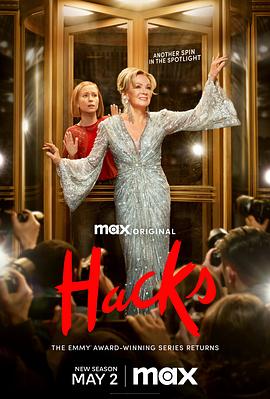Just revisited the first season of "Desperate Scribes" and was musing with a friend about how two shows centered around women's lives could be so distinct; "Desperate Scribes" is filled with an infectious energy, while "London Life" presents a more resigned yet hopeful existence. The former has a relentless drive that's simply electrifying.

A friend mentioned that American TV tends to emphasize straightforward conflicts, making for an engaging watch. This reminded me of "Shameless," another show with a similar approach. Still, I can't help but feel there's something deeper at play here, rooted in cultural differences.
There's this vibrant energy, like when I saw Eileen Gu respond to trolls in a video. She didn't have to, but she did it anyway, driven by that same spirit.
It's truly invigorating. When I see friends engaging in activities that seem to only complicate things without resolving them, I echo the sentiment of those elderly ladies basking in the sun – life can lose its spark sometimes.
Struggle isn't easy. First, you must match the strength of your opponents, or risk being pushed aside. You also need to balance the emotions of the weaker ones, lest they retreat. If either side quits, everything falls apart.
Secondly, there mustn't be an unassailable third party; environmental factors should remain secondary and backgrounded, so that one believes their struggles and choices hold value.
Finally, there's no final victory – one must always be prepared for ongoing battles.
The protagonists of "Desperate Scribes" are ambitious, confident in their work and professional skills, and believe in the rewards of hard work. Deborah, a seasoned comedian facing a career plateau, and Ava, a young writer immersed in digital culture, create compelling dynamics as they navigate their relationship across generational divides.
Their bond is rock-solid, unbreakable. At the end of the first season, Ava bluntly calls out Deborah's cowardice and gets slapped. Later, Deborah receives a gift from Ava – a magazine cover featuring Deborah in her prime, with a note suggesting she's destined for greatness. This leads Deborah to attend Ava's father's funeral, blending warmth with a satisfying twist.
In the third season, Deborah finally lands her dream job as a late-night host, thanks to her agent's efforts, despite having slept with the big boss earlier. She bypasses Ava for the head writer position, choosing a more experienced male candidate, citing industry pressures on women. However, Ava uses leverage to secure the role after threatening to expose Deborah's affair.
After three seasons, I'm left with the same impression: these characters are full of vigor. If Ava were replaced with Fleabag from "London Life," the latter would likely back down, lacking the tenacity and assertiveness needed to face such a formidable adversary. To maintain a relationship in close quarters, one must become equally strong.
The question remains: why invest so much in someone else's game? While confronting powerful figures can fuel one's drive, why pursue it? If you can't establish your own game, you might feel lost and disheartened.
In British dramas, relationships often seem fated, whereas in American stories, they arise from characters' free will (or appear to). This aligns more closely with Chinese storytelling traditions, emphasizing fate over individual choice.
In films like "A One and A Two," the family members aren't actively choosing each other; they're bound by circumstance. In "London Life," the taboo romance between the protagonist and a priest showcases submission to fate, knowing that passions will eventually fade.
This character is shaped by a long history and a perpetually damp climate, leading to a certain disposition. In societies with extensive histories, personal choices can seem insignificant. Where environmental factors outweigh individual agency, we tend to believe more in destiny.
To break free, wealth disparities shouldn't be too stark, generational gaps minimized, and societal pressures reduced. Only then can individuals rise above.
In classic American TV, there's a recurring theme of perpetual conflict. Constant battling, ups and downs, and lively exchanges. In real life, I don't find struggle enjoyable because there's always an insurmountable force. Struggle can be exhausting.
American TV rarely ends with death as a resolution, which is why I prefer "Breaking Bad" over "Better Call Saul." I appreciate characters who knowingly move toward their fate, even if it makes them appear wise and aged. Walter White dies fulfilled, having already been diagnosed with cancer.
To continuously fight requires deep love and unwavering desire. My desires have been subtly subdued by Confucian, Buddhist, and Taoist philosophies.
American narratives: an environment conducive to personal expansion and forging new connections.
British narratives: maintaining inner discipline within a fixed setting, playing within the confines of one's fate.
In a broader context, famous fantasy IPs like "The Lord of the Rings" encourage facing inner darkness, while "Journey to the West" teaches harmony with one's surroundings. Each Chinese person carries the weight of their environment, layer upon layer, like a tortoise carrying a tower. Everyone has structural burdens: their anxieties and avoidance are dictated by cultural backgrounds, often unrecognized.
I dislike arguments, even though confrontation can sometimes be more effective than silence.
Of course, the confidence and courage to argue and strive in American stories also stem from the environment.
Is it better to live passionately, perhaps with a shorter lifespan, or to be calm and gentle, living longer but less vividly? I'm unsure.
From this perspective, I prefer proactive protagonists. "London Life" isn't about passive characters; its conflict arises from the protagonist's introspective monologues directed at the audience.
American stories distinguish characters into good and bad, while British stories explore the duality of self versus self-awareness. It's not just the Freudian id, ego, and superego; our culture instills a predisposition towards internal conflict.
I recently came across a post on Xiaohongshu about a woman happily divorcing, with a sign in the civil affairs office reading "Dare to Struggle, Good at Struggling." Commenters noted that only those capable of such resilience are suited for marriage.
Indeed, those who dare to struggle and excel at it are better equipped for life, especially when surrounded by similarly spirited individuals. When they encounter someone who doesn't engage, it can lead to a true downfall, as the energy is not reciprocated and must be absorbed internally.
It's akin to an Olympic champion playing against an amateur – if the amateur can't keep up, it's no fun. Moreover, life lacks clear rules.
I haven't fully grasped the specifics. For instance, I have dislikes, but I don't want to deepen my involvement through aggressive actions. I'm just getting by, but watching "Desperate Scribes" and seeing everyone's enthusiasm is quite refreshing.
 七弟电影
七弟电影
![韩国丧尸片《#活着/ALIVE》百度云网盘资源[HD-MP41.7GB][完整版][高清韩语中字]-七弟电影](https://gaga.pochou.com/wp-content/uploads/2020/06/活着-电影剧照-5-300x300.jpg)

